Français English
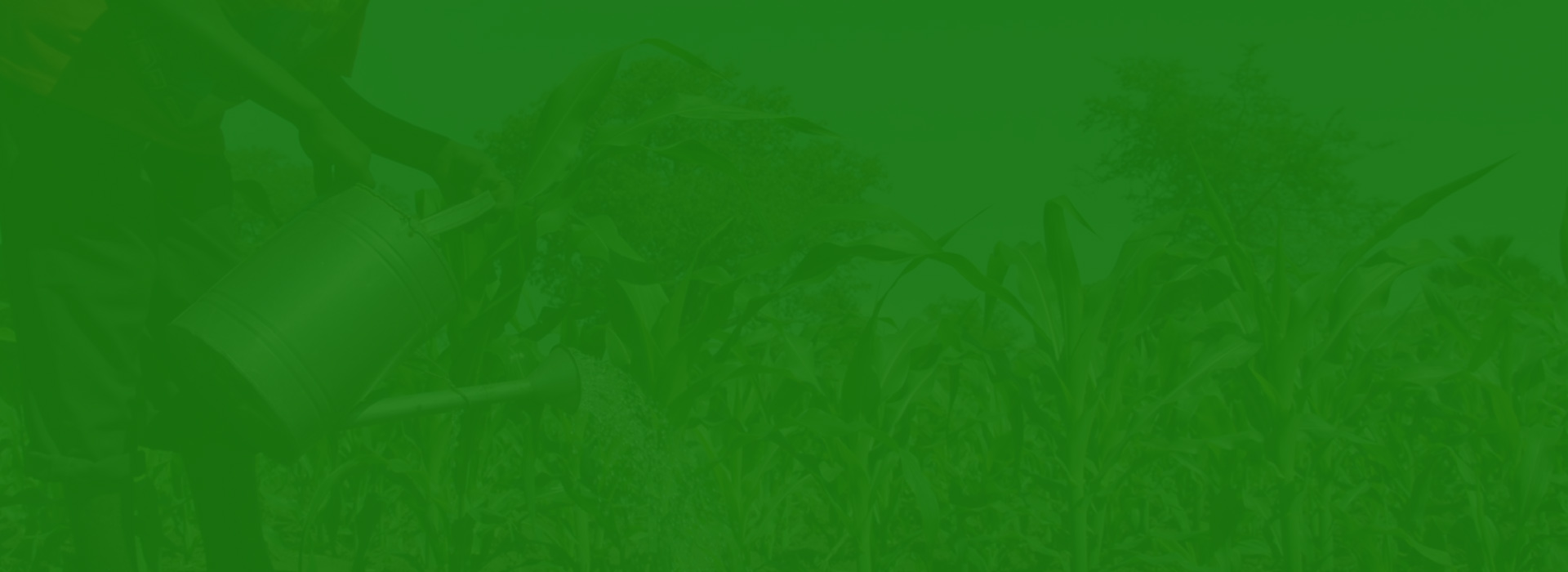
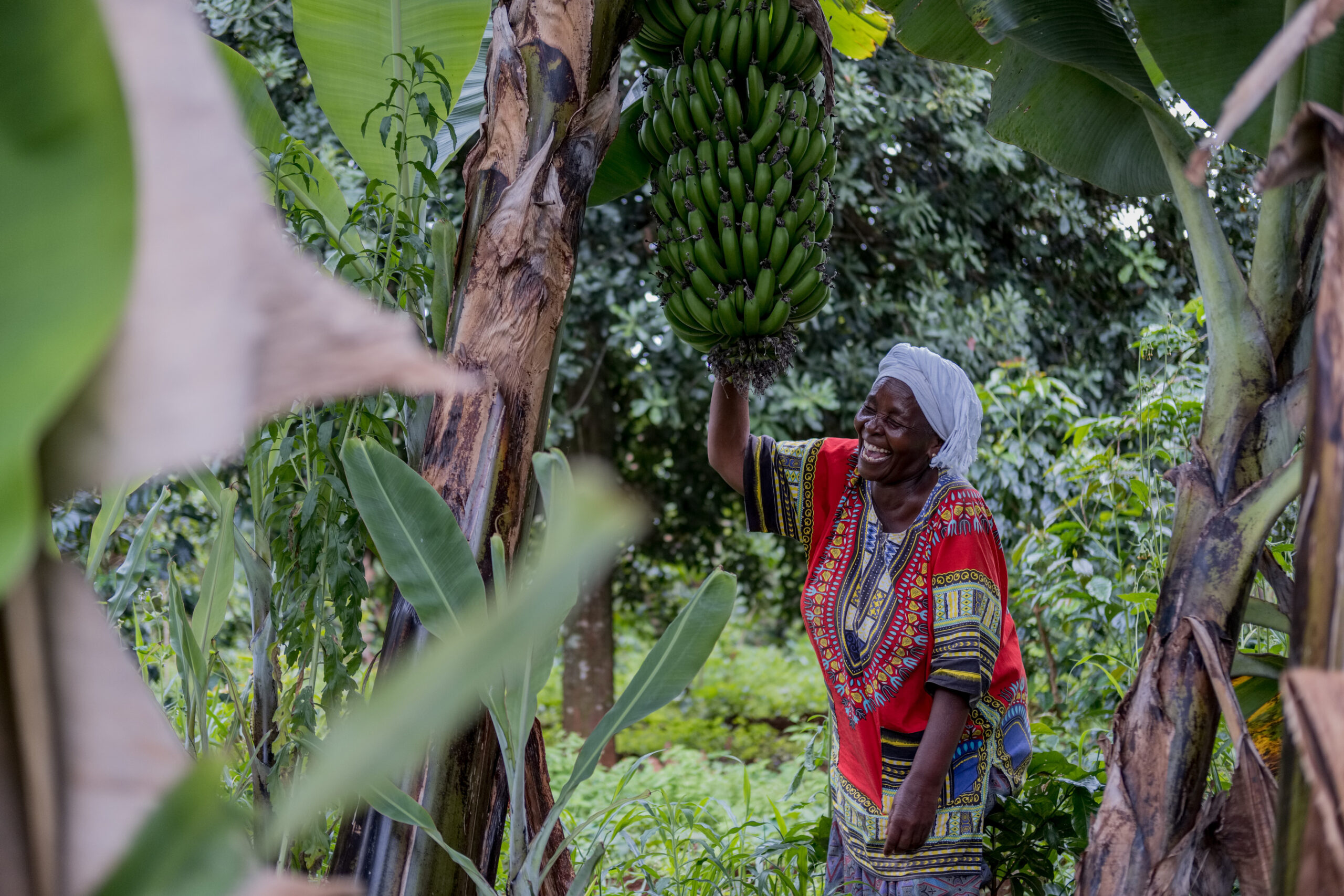
Current Vacancies
In collaboration with the Government of Tanzania, the AATI recently launched the Tanzania Agriculture Transformation Office (ATO). To support the operationalization of the ATO, we are accepting applications for a number of roles.
Apply here
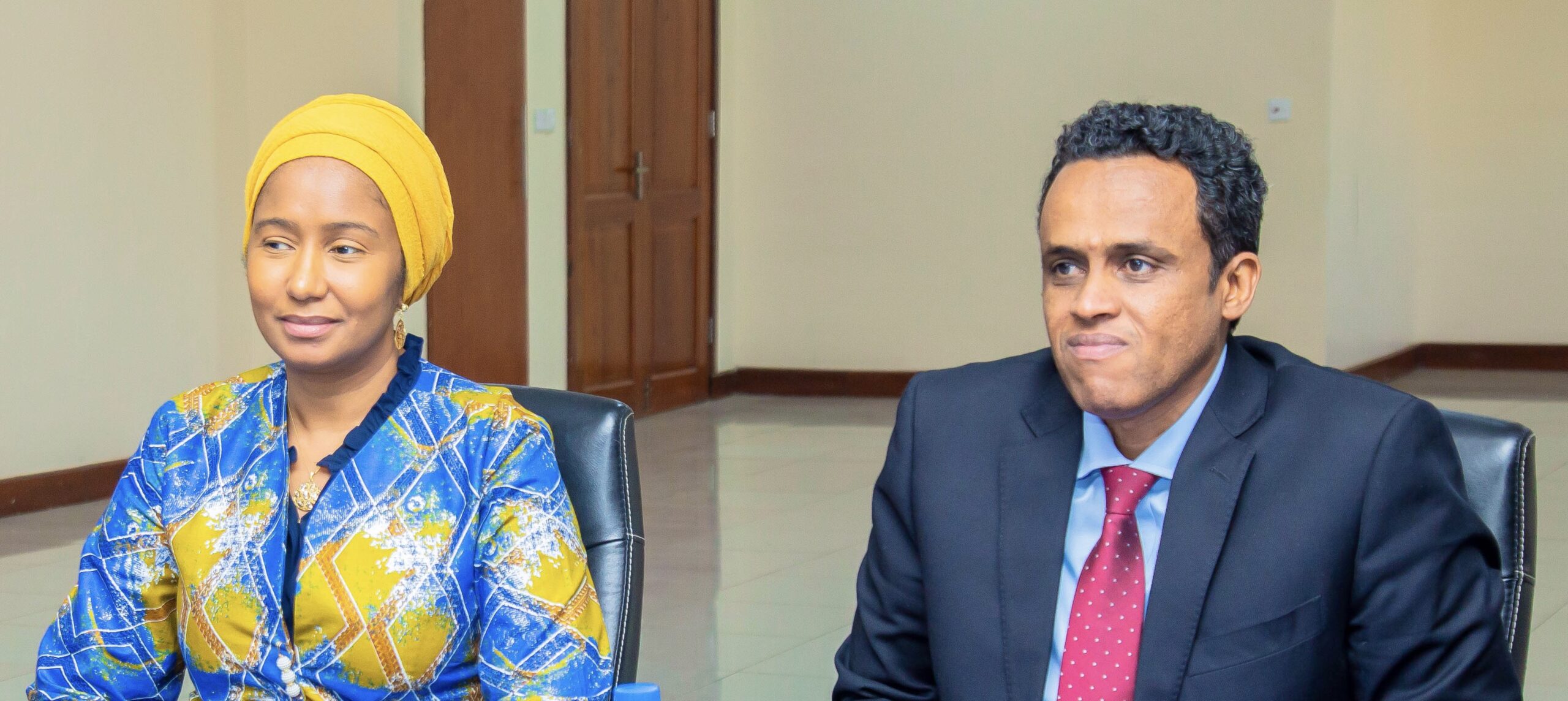
Tanzania Agricultural Transformation Workshop
The Tanzania Ministry of Agriculture together with the African Agricultural Transformation Initiative (AATI) launched a consultative workshop run from 19th – 23rd June, 2023. The aim of the workshop was to explore AATI support to Tanzania’s agricultural transformation agenda, and engage in genuine discussions on the setting up of an Agricultural Transformation Office (ATO) within the Ministry of Agriculture.
Read more

Word from the Executive Director
The launch of the African Agricultural Transformation Initiative (AATI) in July, 2022, presents a unique opportunity to offer solutions to the challenges experienced in the agricultural sector. Over five years (2021-2026), the AATI will seek to establish new (and strengthen existing) national mechanisms designed to enhance delivery of agricultural transformation policies and programmes.
Read more
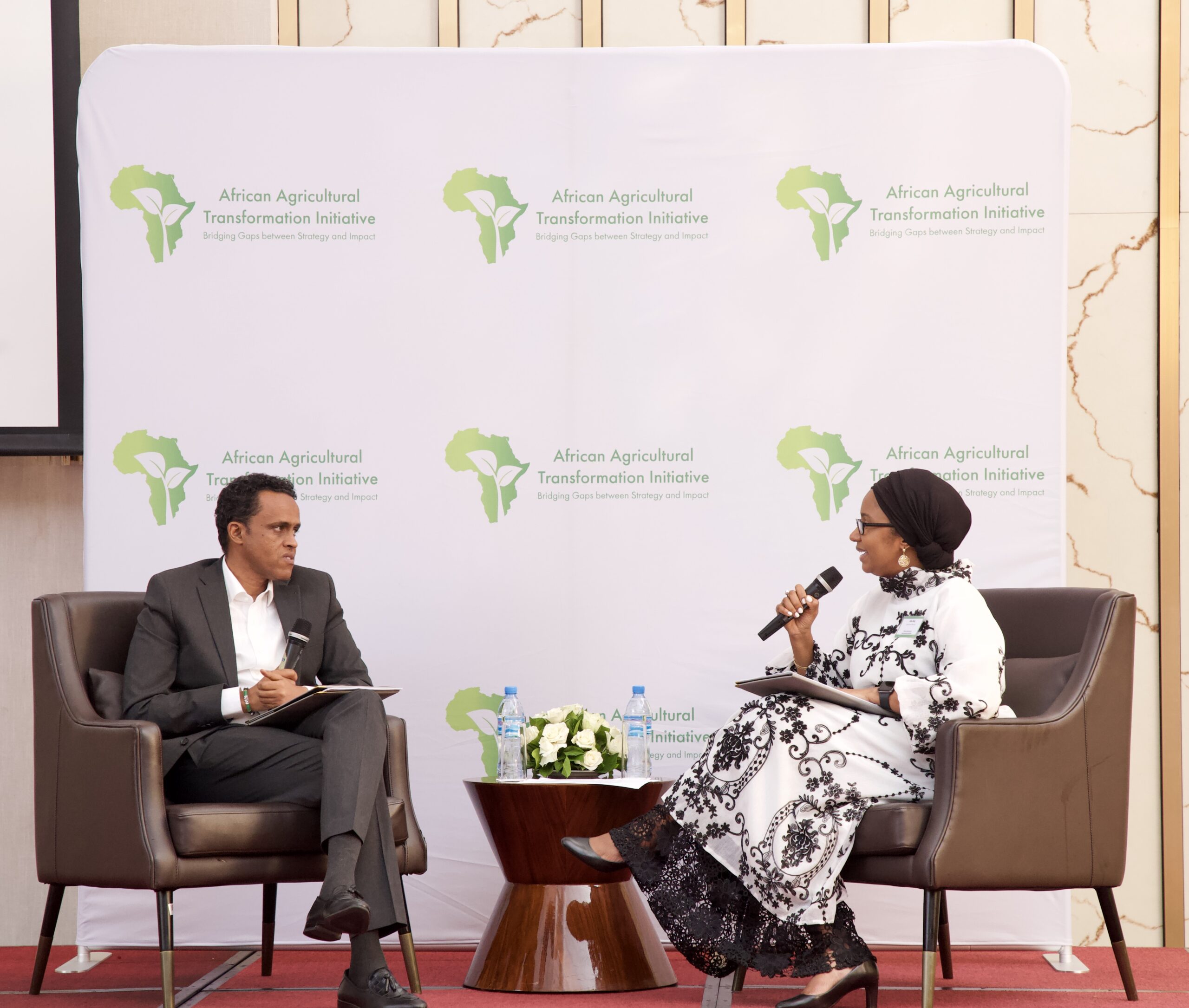
Launch of the Agriculture Transformation Office
The Ministry of Agriculture, Ministry of Livestock and Fisheries, Tanzania together with the AATI launched the Agriculture Transformation Office (ATO) at a side event during the Africa Food Systems Forum (AGRF) 2023.
Read more
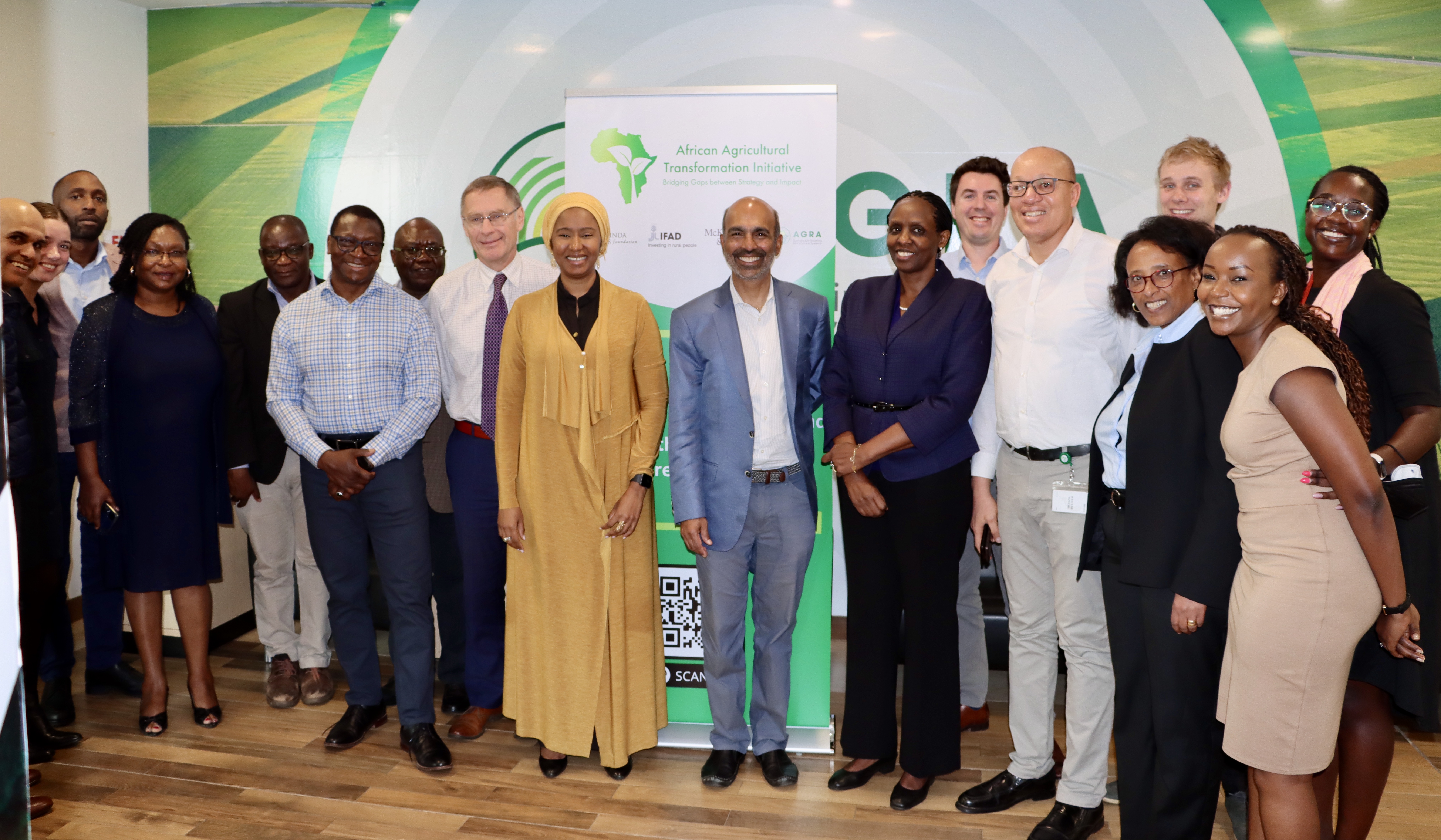
AATI Strategic Retreat
The African Agricultural Transformation initiative (AATI) held its first annual strategic retreat hosted by the Alliance for a Green Revolution in Africa (AGRA). The purpose of the retreat was to reflect on AATI achievements so far, and plan for the way forward. As part of the retreat, the Steering Committee members met with the Cabinet Secretary of Agriculture and Livestock Development, Kenya, Hon. Mithika Linturi.
Read moreThe AATI
The African Agricultural Transformation Initiative (AATI) is co-founded by the Bill & Melinda Gates Foundation (BMGF), the International Fund for Agricultural Development (IFAD), the Alliance for a Green Revolution in Africa (AGRA) and McKinsey & Company.
AATI aims to foster inclusive and sustainable agricultural transformation across the African continent.
Over the next few years the AATI seeks to establish new (and strengthen existing) national agencies designed to support delivery of agricultural transformation policies and programmes.
Our Initiative helps governments achieve their goals of reducing rural poverty, improving food security, building climate resilience, and promoting rural economic growth.
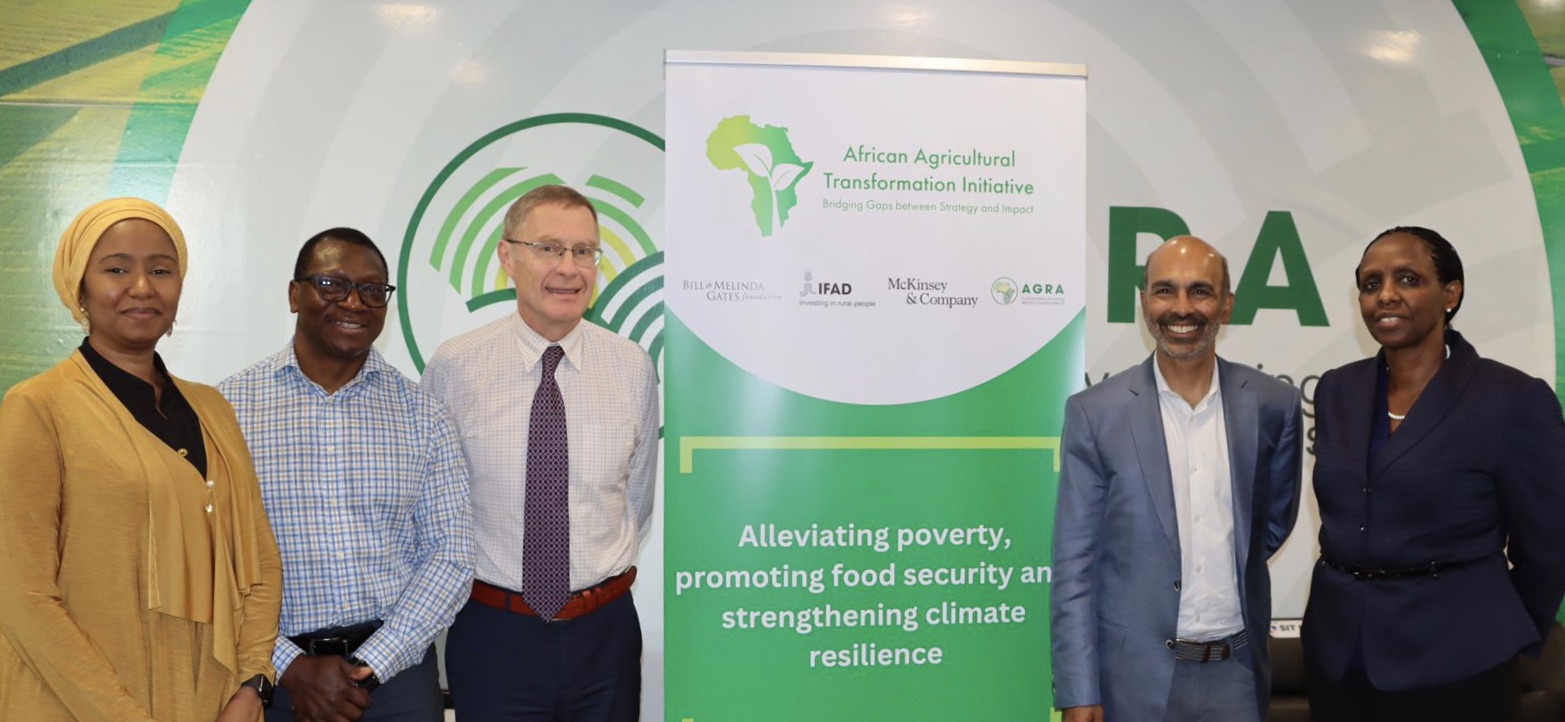
Partners
The initiative was founded by four partners. Each aims to use their local institutions and networks to maximize the impact of the support model.

Bill & Melinda Gates Foundation
Guided by the belief that every life has equal value, the Bill & Melinda Gates Foundation works to help all people lead healthy, productive lives. In developing countries, it focuses on improving people's health and giving them the chance to lift themselves out of hunger and extreme poverty. In the United States, it seeks to ensure that all people - especially those with the fewest resources - have access to the opportunities they need to succeed in school and life.

The International Fund for Agricultural Development
The International Fund for Agricultural Development (IFAD) invests in rural people, empowering them to reduce poverty, increase food security, improve nutrition, and strengthen resilience. Since 1978, IFAD has provided US$23.2 billion in grants and low-interest loans to projects that have reached an estimated 518 million people.

AGRA
AGRA is a farmer-centered, African-led, partnerships-driven institution that is working to transforming smallholder farming from a solitary struggle to survive to a business that thrives. In collaboration with its partners—including African governments, researchers, development partners, the private sector and civil society— AGRA’s work primarily focuses on smallholder farmers – men and women who typically cultivate staple crops on two hectares or less. AGRA is now recognized across the continent as a strong voice for African rural development, a prosperous agricultural economy, and for supporting thousands of small African businesses and millions of African families to improve agriculture as a way to ensure food security and improve their livelihoods.

McKinsey & Company
McKinsey & Company is a global management consulting firm committed to helping organizations realize sustainable, inclusive growth. We work with clients across the private, public, and social sectors to solve complex problems and create positive change for all their stakeholders. We combine bold strategies and transformative technologies to help organizations innovate more sustainably, achieve lasting gains in performance, and build workforces that will thrive for this generation and the next.
Recent Events
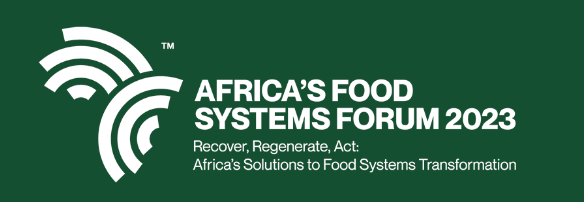
AGRF Summit 2023 - 4th - 8th September, Dar es Salaam, Tanzania
Africa's Food Systems Forum 2023 Summit’s theme, “Recover, Regenerate, Act: Africa’s Solutions to Food Systems Transformation,” focuses on building back better food systems and food sovereignty with youth and women at the center. The theme identifies three steps needed to achieve this transformation: Recovery, Regenerate, and Act.
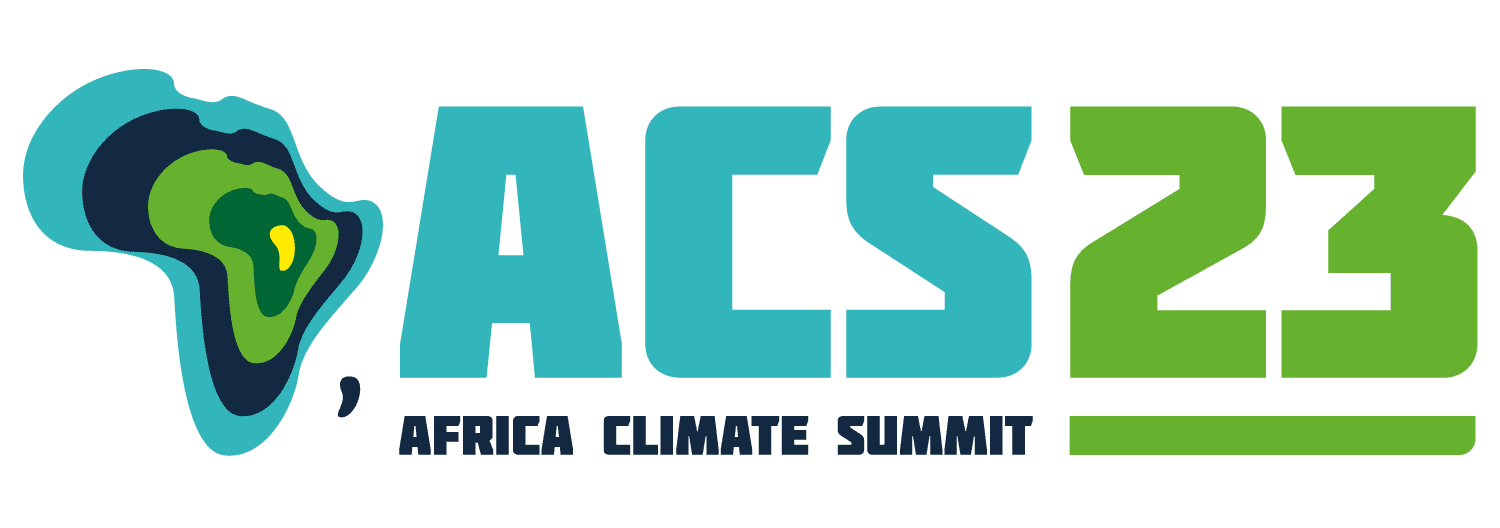
Africa Climate Summit - 4th - 6th September, Nairobi, Kenya
At the Africa Climate Summit, leaders will be called upon to make ambitious pledges and commitments. A comprehensive "Pledging and Commitment Framework" will be developed to guide these actions. By embracing ambitious ideas and making bold commitments, we have the opportunity to turn the tide on climate change, not only in Africa but also globally.
Upcoming Events
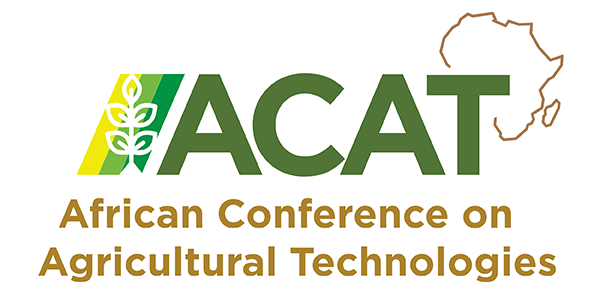
African Conference on Agricultural Technologies - 30th Oct - 4th Nov, Nairobi
The Conference brings together a dynamic community of agricultural researchers, policymakers, industry leaders, and innovators to exchange ideas, share best practices, and explore innovative solutions that can enhance agricultural productivity in Africa.
FAQ
Read below our top frequently asked questions about our organization.
What is the goal of the African Agricultural Transformation Initiative (AATI)?
The objective of the AATI is to build, and help to coordinate, effective and sustainable delivery mechanisms that can implement policies to facilitate agricultural transformation and prioritize food systems transformation, inclusion and sustainability in sub-Saharan African countries.
How is the AATI approach different to other initiatives?
The AATI approach is based on partnership. The main focus of AATI support lies on close on-the-ground collaboration with government stakeholders in partner countries to jointly accelerate or enable sustainable and inclusive agricultural transformation. Whilst partner countries will also receive funding through the AATI, countries must be willing to commit funding themselves to join a partnership with the AATI.
How will the AATI be set-up? How will this set-up enable the underlying theory of change?
The initiative involves establishing national delivery units, with support from a central AATI coordination unit. The central unit works with national delivery units to identify priority areas for inclusive and sustainable agricultural transformation, and assist them in designing policies and projects in these priority areas. The central unit includes a steering committee and a council of advisers providing support and guidance. National delivery units, independent of the AATI coordination unit, are hosted by governments to increase ownership and are intended to become the main drivers of their countries’ food systems transformation.
How is the AATI expected to deliver long-term, sustainable impact?
Support from the central AATI coordination unit will eventually cease, leading to complete ownership of the national delivery unit by each government. Additional coordination and knowledge management will be provided by an institution in Africa, which will be selected based on an evaluation by the AATI coordination unit to determine suitability and readiness. As a result of knowledge management and communications of results achieved, demand for national delivery units is expected to increase in other countries in Africa and beyond, leading to an expansion of national delivery units, informed by insights on what works best in each context.
How are countries selected to be part of the AATI?
Countries are selected for the initiative based on their needs and potential for performance, as well as opportunities for learning from other initiatives. The governments of selected countries are required to demonstrate adequate commitment and readiness for transformation.
What is delivery infrastructure?
Strong delivery infrastructure can be defined as a local institution which helps to set and articulate goals and outcomes, coordinates along local actors, monitors progress against these goals, and works closely with and reports directly to the government to ensure aligned transformation activities towards one ultimate strategic goal. They also play a key role in convening actors for implementation and communicating results to ensure ongoing government support and buy-in for jointly established objectives. Finally, they can play a key role in evidence generation and analytics to advise on priority policies based on real evidence.
Sign up for our updates
Sign up now and receive the latest AATI news and updates
direct to your inbox.

Hosted by IFAD, AATI seeks to support African countries in implementing their agricultural strategies.
Lorem ipsum dolor sit amet, consectetur adipiscing elit. Ut elit tellus, luctus nec ullamcorper mattis, pulvinar dapibus leo.
Lorem ipsum dolor sit amet, consectetur adipiscing elit. Ut elit tellus, luctus nec ullamcorper mattis, pulvinar dapibus leo.
